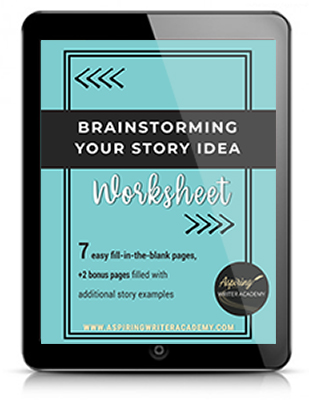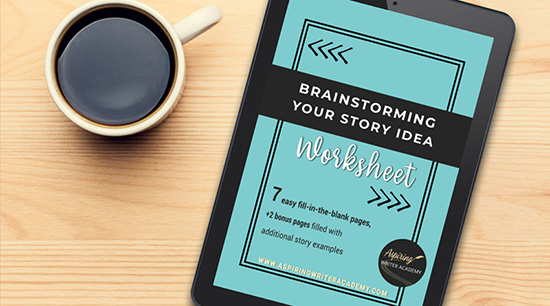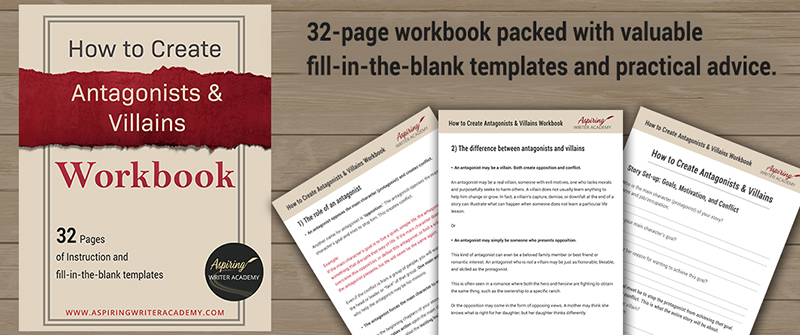How to Get Back into Writing

If you are a writer who meets every deadline and keeps your production schedule flourishing at peak level through holidays, sickness, and other hard, challenging time periods, then my hat is off to you! Great job!
For others, that masterful feat is not so easy.
If you have slacked off from writing for any reason, we hope How to Get Back into Writing can give you a PLAN to get back in the game!
In the post below, we will discuss how to:
- Evaluate the present
- Make health a priority
- Recapture inspiration
- Create a vision board
- Set new goals
- Stay motivated
- Reward small wins
1) Evaluate the present
Before you can go forward, you need to first see where you are at, not just in your writing but in your life. No matter what happened to derail your writing progress, take the time to reflect on your current situation.
- Where are you right now? Are you still recovering from your setback?
- What are your personal obligations? What does your calendar look like going forward?
- How is your health & energy level? What is your present mental state? Are you energized and ready to jump back into writing, or do you need some motivation?
- Where are you in your writing career? Are you in the middle of writing a book or just starting a new one? What skills might you need to learn?
2) Make health a priority
If your physical health has taken a toll, you may need to focus on eating healthy, getting enough sleep, taking your vitamins, and getting enough exercise.
Sometimes, what you need most is rest.
In addition to physical relaxation, you may also need emotional rest.
If you feel overwhelmed, stressed, exhausted from a particular season of life, perhaps the best thing you can do before you get back into writing is to take time to ‘refill your creative well.’
Give yourself permission to take time out for yourself.
Play music, read a book for pleasure, make crafts, go on a hike or a day trip. Do something to free your mind and rejuvenate your writing spirit.
What would you most like to do? When is the last time you indulged in this activity?
Do something special for yourself. Perhaps that might mean getting a massage or simply going to lunch with a loved one whom you haven’t seen in a long time.
3) Recapture inspiration
Sometimes writers get so caught up in social media, promotion, and deadlines that they “burn out” and forget the simple truth of why they started writing in the first place.
Make a list of all the reasons you love to write. Why do you want to be a writer?
Socialize with other writers. Just being around other writers and listening to them talk about writing can help get your motivation back on track. Other writers can help brainstorm plot problems or help trigger new ideas.
Reboot by polishing up your writing skills. Take a writing class, read a book on writing, or go to a writer’s conference to boost your motivation and energy as well as your writing skills.
You might want to sign up for a writing challenge like NaNoWriMo. www.nanowrimo.org This site helps you track your wordcount and other fun stats for your novel, which can be very motivational.
During the months of April and July, you can participate in Camp NaNoWriMo where you set your own wordcount goal. And in November, (National Novel Writing Month), you can join in with others who are all trying to write 50 K words in 30 days. Or you can use their wordcount and stat trackers to do your own challenge any time of the year.
4) Create a vision board
Before embarking on the next leg of your writing journey, you should have a clear vision of where you want to go.
Take a look at your list of reasons for why you want to be a writer. Find images online or in magazines that give a visual of your life goals and cut out and paste them onto a posterboard or pin them to a cork board.
Make sure the collage of pictures you create is hung in a place where you will see it every day. Preferably, on a wall in your house or office.
(If the images are kept in a file on your computer and you do not turn on your computer that day, then you are not seeing the pictures you need to keep yourself motivated.)
Where do you want your writing to take you? Your life and your writing are connected.
Do you want to earn a certain amount of money per year? Enough to buy a new car or provide for your family? Or go on vacation? Would you like to win a particular award or see your name on the New York Times Bestseller list? Do you want to use your words to inspire people to pursue their own dreams? Would you like to donate your book profits to provide meals for the poor?
Where do you see yourself next year? In 3 years? In 5 years? Or 10?
What is the ultimate dream? Where would you like to see yourself in 20 years?
5) Set new goals
After a setback or prolonged absence from writing, it is unrealistic to expect to jump right back into a tight writing schedule. You will need to ease back into your writing routine slowly. With small steps.
That might mean setting a goal of writing for only 30 minutes a day. Then increasing that time each week until you get back to where you want to be.
Considering your reasons for writing and your vision board, what are the steps you will need to take to make your dreams a reality? What will you need to do?
Create some short-term goals that will lead you toward that vision but be realistic about how much you can handle. Start with a few easy goals to build confidence and momentum as you get back into the routine of writing, then you can increase your output little by little as time goes on.
You might get a planner and set 90-day goals, monthly goals, and weekly goals. Break down a larger goal into smaller chunks that you can realistically achieve.
How many words or scenes will you write each week?
How many chapters each month?
If you miss a day, have you built ‘make-up’ days into your schedule?
Do you allow for days off to stay healthy and inspired?
Instead of hoping that writing will somehow fit back into your schedule, make a PLAN.
Schedule the days and times you will write on your calendar.
6) Stay motivated
Other than staring at your vision board day after day, what can you do to stay motivated and focused on your writing goals?
- Use a monthly, weekly planner. A planner helps you see your writing schedule at a glance. If you write what you accomplish each day in your planner, you can see your progress build. This should motivate you to press on to accomplish your bigger writing goals (like finishing a book).
- Stickers. As silly as it might sound, many writers use stickers as rewards to check off daily writing goals. For example, if you achieved your daily wordcount, you might want to give yourself a colorful smiley sticker beside your goal for that day in your planner or on a wall or desk chart.
- Get an accountability partner. Checking in weekly with another person keeps you accountable because you are going to want to give that person a good report. Your accountability partner doesn’t have to be a writer but just someone who supports your writing and is going to ask you—what did you accomplish this week?
- Stay connected with a writing group or organization. When writers get together either in person or online and talk about writing and discuss new ideas, the energy level for all involved tends to increase. Stay up to date with insider news, upcoming opportunities, and sign up for webinars and podcasts where you can hear your favorite authors speak.
7) Reward small wins
Writing a book is no small task. Sometimes it takes writers months upon months to write a book. To keep up your motivation and momentum, it is important to celebrate small wins along the way instead of waiting for the book to be completed.
Celebrating small wins are especially important when just getting back to writing.
In addition to giving yourself a smiley sticker in your planner, how else can you reward yourself for a job well done?
Plan these celebration rewards in advance to give you something to look forward to.
Example: You may decide to go out with your family for ice cream after writing a specific number of pages or after reaching a certain wordcount.
Perhaps set small milestone rewards for each chapter of the book you write!
You might allow yourself a night of TV to watch a favorite show or purchase tickets to go to a movie. You might buy yourself a small charm for your charm bracelet.
It doesn’t have to be a big or expensive celebration, but it should be special. Do something special for yourself that you do not normally do when small milestones for your writing are achieved.
If you won a contest for your writing or even became a finalist – how will you celebrate? Enjoy this moment!
How will you celebrate a good book review or a special mention in a prominent writing magazine? How will you celebrate getting an agent or a book contract?
Too often, writers will finish one book, and race off to start the next without taking time in between to catch their breath, rejuvenate, and celebrate their accomplishment.
Writing a book is a huge accomplishment!
Out of all the people in the world who dream about writing a book, only about 3 % ever actually do. After spending months or sometimes up to a year or more writing a book, getting to ‘The End’ is worth celebrating. But don’t forget to celebrate all the little wins along the way!
So how will you celebrate? How will you reward yourself?
We hope you have enjoyed How to Get Back into Writing and that you have gained some valuable tips to create a plan that will lead you forward on your writing journey.
If you have any questions or would like to leave a comment below, we would love to hear from you!
And if you would like additional help developing your story idea, we invite you to download our Free Brainstorming Your Story Idea Worksheet.
Do you find it difficult to create compelling antagonists and villains for your stories? Do your villains feel cartoonish and unbelievable? Do they lack motivation or a specific game plan? Discover the secrets to crafting villains that will stick with your readers long after they finish your story, with our How to Create Antagonists & Villains Workbook.
This 32-page instructional workbook is packed with valuable fill-in-the-blank templates and practical advice to help you create memorable and effective antagonists and villains. Whether you're a seasoned writer or just starting out, this workbook will take your writing to the next level.
Our Goal for Aspiring Writer Academy is to help people learn how to write quality fiction, teach them to publish and promote their work, and to give them the necessary tools to pursue a writing career.

ENTER YOUR EMAIL BELOW
TO GET YOUR FREE
"Brainstorming Your Story Idea Worksheet"
7 easy fill-in-the-blank pages,
+ 2 bonus pages filled with additional story examples.
A valuable tool to develop story plots again and again.
Other Blog Posts You May Like
Slingshot Week: How to Set New Goals for Writing in 2023
The Pros and Cons of Writing Holiday Fiction (Collections & Anthologies)
Biggest Self-Publishing Mistakes New Authors Make
Novel Writing Tips: Don’t Bury the Dialogue!
What to Include in Your Author Newsletter
How to Choose Characters to Populate Your Fictional Story
Why Authors Need an Email Newsletter
Fiction Writing: Critique Group Etiquette & Warning Signs of a Good Group Gone Bad
How to Prep for NaNoWriMo (National Novel Writing Month)
Fiction Writing: How to Plot a Story where the Antagonist is an ‘Invisible Foe’
What Authors Need to Know About ISBN Numbers Before Self-Publishing
Fiction Writing: How to Find a Critique Partner/Group
How to Research Information for a Historical Novel
7 Steps to Begin Writing a New Fictional Story
Learn to Plot Fiction Writing Series: Story Analysis of the movie “Signs”
Fiction Writing: How to Get a Literary Agent
How Writing Prompts Can Improve Your Fictional Story
Creative Writing: 5 Ways to Strengthen a Weak Fictional Character
Fiction Writing: Create a Storyboard to Map Out Your Scenes
Fiction Writing: How Specific Details Can Bring Your Setting to Life

is a multi-published author, speaker, and writing coach. She writes sweet contemporary, inspirational, and historical romance and loves teaching aspiring writers how to write quality fiction. Read her inspiring story of how she published her first book and launched a successful writing career.












































